Part of property in flood plain but house isn't.... significance?
monzamess
17 years ago
Featured Answer
Sort by:Oldest
Comments (45)
qdognj
17 years agolast modified: 9 years agosweet_tea
17 years agolast modified: 9 years agoRelated Discussions
fruit in flood plain
Comments (5)In the last flood, the Baraboo River was up to our armpits inside the cabin and lasted for about a week, starting June 8th. That was the worst it has been. I'm not sure where the water table is, but the river level is about 10 feet from the ground level most of the time. Has only gone over the lawn about 3 times in the last 45 years, and only that once inside the cabin. The oaks and pines grow fine there, but I wasn't sure about fruit trees. The soil is sandy. Maybe I'll try just one plum tree, and if it grows, I can graft on some scions from my 7 kinds I have at home for cross-pollination. If the plums get too wormy from lack of care, the squirrels can still enjoy them. It will be interesting to see how the coming spring goes, with all the snow on the ground. Northwoodswis...See MoreWhy isn't my house selling?? What to do now?
Comments (49)Just wanted to post a happy ending update. Shortly after this thread ended, and my new pic were up, we did lower the asking price for sale and rent. Within a week we had 5 more showings for purchase(no offers) but a very qualified renter applied to rent. Unlike my previous tennants who had a very good job, low credit score, BUT always paid their rent on time.. this couple has an excellent income, good credit score and excellent references. They had always owned a home, but were transferred 18 months ago, were planning on it being temporary, so rented. The home they have been renting in Michigan is now up for sale, and I looked at the pictures and they have lovely furnishings, that will fit perfect in my home. I'm very confident it will make the next time I list my home much easier. I have stipulated in our contract a longer 'right to show' clause.. previously 60 days, now 90 days. They stated they might be interested in purchasing at a later date, but are unsure about a future transfer at this point. I would have rather sold the home, but at least we have rental income again- the same amount as I had previoulsy been receiving. And we roll the dice and hope there isn't any further decline in the housing market in the next year or two.. I do always learn by my mistakes! Next time I will insist on better pictures from the start.. besides that.. my realtor really did an excellent job for me, in keeping me well informed of any and all feedback and following up with people frequently. I know those things should just be expected.. but not so much so with my last realtor.. I would definately use her again..just not have her take the pictures!.. and she was very ok with that....See MoreAnyone familiar with flood plain issues?
Comments (7)Our city engineer has reluctantly OK'd these plans. On paper, he can't prove that the plan wouldn't work. The city is always afraid of being sued. Last ditch effort is to see if the Building Review Board can nix the project. However, the only portion of their charter that obtains here is that a proposed building 'fit the site'. (I think the plan should fail on that point. There may be a style that would work -- a contemporary on pilings? -- but this plan tries to alter the site to fit the building plans.) Is anyone familiar with this kind of proposed foundation/water-retention facility? I hoped that a forum member who lives near a waterway might have heard of this. The lot owner's engineers claim this will *improve* the flooding along the waterway! At the last BRB meeting city staff recommended the lot owner legally assume responsibility for damages. That's nice, but I can't see how he could make whole all the homeowners affected if we all flood. We'd all have to sue, etc., etc. Big mess. I wonder what the lot owner REALLY wants. Maybe he could 'donate' the lot to the city, which would then officially declare it what it IS, a wetland, not buildable. The owner could stop paying RE tax and possibly qualify for a charitable deduction. The city wouldn't have to DO anything with the land except leave it alone. Meanwhile...how to keep kicking this can down the road until it goes away?...See MoreProperty flooded by neighbors
Comments (28)We're also in Oakland County in Michigan and built on a peninsula on a small lake with designated wetlands along the entire shoreline, as well as a protected wetland near the street that our driveway passes over. There's a culvert that connects the two wetlands near the street and we needed to obtain a special permit when we wanted to improve the land for our driveway. DTE also had to obtain a permit and bore above the culvert rather than trench. When I was researching the wetlands designation of our property before we purchased it, I stumbled upon a permit my neighbor submitted for a shoreline improvement, so it's possible to search for them somewhere to see if a permit was filed. The DEQ is pretty draconian when it comes to enforcing wetland setbacks and remediation and have strict rules when displacing wetlands. We had to ensure that our building site was outside of the 25 foot wetlands setback when placing the house and all silt barriers and visual construction fencing was in place so the wetlands weren't disturbed. In short, if they just pushed dirt into the wetlands without a permit then it's a definite violation. If you're friendly with them, I would approach them about your increased flooding and get a dialog started to see if you can come to an amicable solution. If you're not friendly, then throw in questions like "Was it hard to get the DEQ approval to improve the site?" and gauge his reaction. If it comes to a legal issue, write to the DEQ to inquire if everything was done properly. Worst case scenario is that they get heavily fined until the wetland is restored and proper setbacks are adhered to....See Moreklimkm
17 years agolast modified: 9 years agogalore2112
17 years agolast modified: 9 years agoCarol_from_ny
17 years agolast modified: 9 years agofinesse
17 years agolast modified: 9 years agoNancy in Mich
17 years agolast modified: 9 years agofinesse
17 years agolast modified: 9 years agogalore2112
17 years agolast modified: 9 years agochisue
17 years agolast modified: 9 years agosue36
17 years agolast modified: 9 years agofinesse
17 years agolast modified: 9 years agosue36
17 years agolast modified: 9 years agofinesse
17 years agolast modified: 9 years agosue36
17 years agolast modified: 9 years agofinesse
17 years agolast modified: 9 years agokathyg_in_mi
17 years agolast modified: 9 years agomelbat
17 years agolast modified: 9 years agofinesse
17 years agolast modified: 9 years agosue36
17 years agolast modified: 9 years agofinesse
17 years agolast modified: 9 years agoklimkm
17 years agolast modified: 9 years agoklimkm
17 years agolast modified: 9 years agokathyg_in_mi
17 years agolast modified: 9 years agomonzamess
17 years agolast modified: 9 years agoklimkm
17 years agolast modified: 9 years agoLisa
7 years agolast modified: 7 years agoKevin L
7 years agolast modified: 7 years agocpartist
7 years agoLisa
7 years agoKevin L
7 years agoKevin L
7 years agotinahudson1970
6 years agoKevin L
6 years agoHU-976132351
5 years agokathyg_in_mi
5 years agocpartist
5 years agolast modified: 5 years agoHU-976132351
5 years agomaifleur01
5 years agolast modified: 5 years agoBuehl
5 years agoncrealestateguy
5 years agoHU-976132351
5 years agosuseyb
5 years agomaifleur01
5 years ago
Related Stories
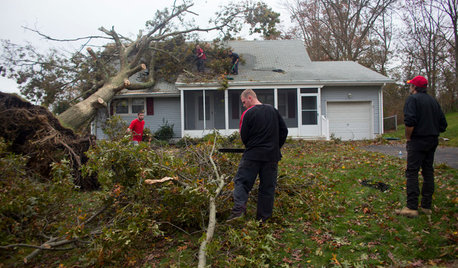
MOST POPULARWhat to Do After a Hurricane or Flood
How you treat your home after a natural disaster can make all the difference in its future livability — and your own personal safety
Full Story
DOORSKnow Your House: Interior Door Parts and Styles
Learn all the possibilities for your doors, and you may never default to the standard six-panel again
Full Story
REMODELING GUIDESDesign Workshop: Is an In-Law Unit Right for Your Property?
ADUs can alleviate suburban sprawl, add rental income for homeowners, create affordable housing and much more
Full Story
KITCHEN DESIGNAlternatives to Granite Countertops, Part II
Still looking for a new kind of countertop? Try sodalite, zinc, limestone, onyx and more
Full Story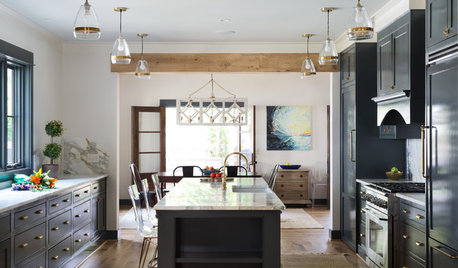
HOUZZ TOURSHouzz Tour: A New Farmhouse Suits a Growing Family
Homeowners swoop on a next-door property to tear down a flooded house and build a custom home
Full Story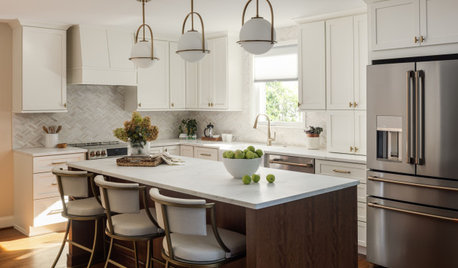
MOST POPULAR5 Remodels That Make Good Resale Value Sense — and 5 That Don’t
Find out which projects offer the best return on your investment dollars
Full Story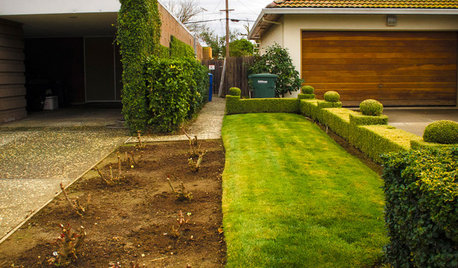
EXTERIORSWhere Front Yards Collide: Property Lines in Pictures
Some could be twins; others channel the Odd Couple. You may never look at property boundaries the same way again
Full Story
REMODELING GUIDESYou Won't Believe What These Homeowners Found in Their Walls
From the banal to the downright bizarre, these uncovered artifacts may get you wondering what may be hidden in your own home
Full Story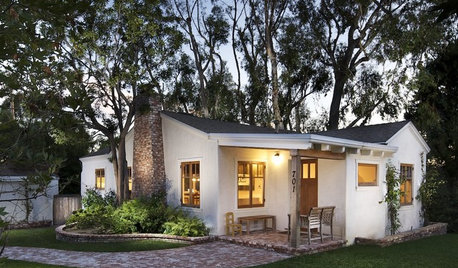
MOVING5 Risks in Buying a Short-Sale Home — and How to Handle Them
Don’t let the lure of a great deal blind you to the hidden costs and issues in snagging a short-sale property
Full Story
HOUZZ TOURSHouzz Tour: Innovative Home Reunites Generations Under One Roof
Parents build a bright and sunny modern house where they can age in place alongside their 3 grown children and significant others
Full Story


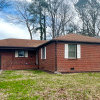


rrah